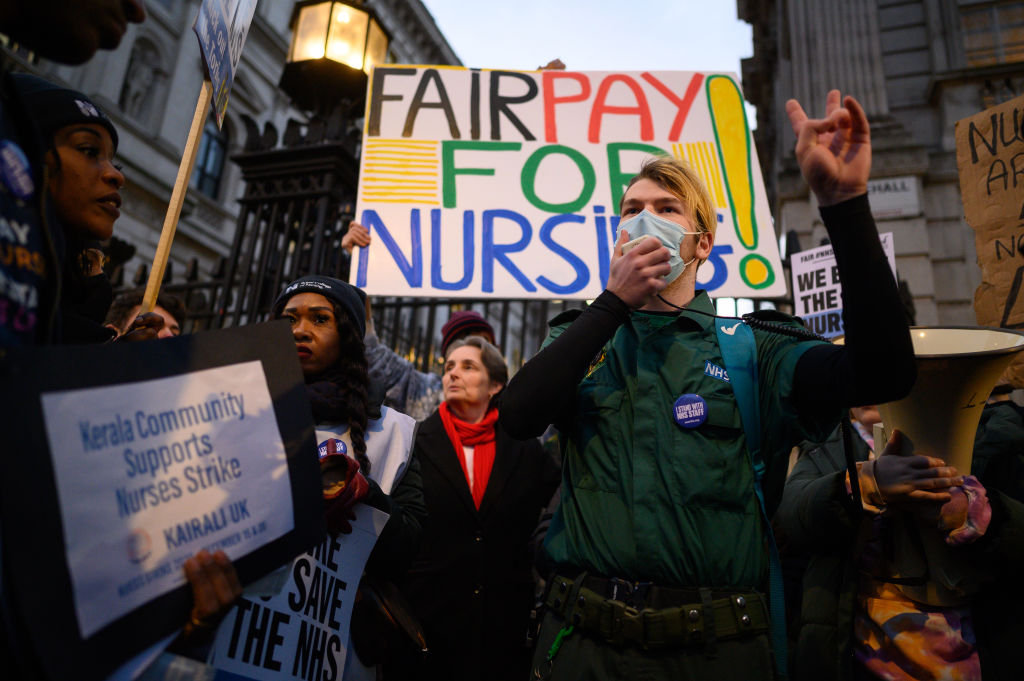Analysis: NHS strikes are about morale, stupid

As Britain braces for more strikes in the NHS later this month and ministers are locked in tense pay negotiations, 14 health unions have pulled out of independent pay review process. Sascha O’Sullivan looks at the collapse in morale behind the latest set of strikes.
Physiotherapists are going on strike and all those Britons who fail to do their exercises for their bung knee at home will be relieved of the need to sheepishly confess. At least, for a day.
Just know, I am doing my absolute best to avoid making jokes about physiotherapists pay demands being a bit of a stretch, pulling the Prime Minister’s leg, or giving us all a backache.
In all seriousness, pretty much everyone in the UK is currently on strike, except apparently me. The strikes which matter the most are of course those in the NHS, and this morning Rishi Sunak and Jeremy Hunt faced a blow at the knees as 14 unions pulled out of the independent pay board, which decides how much workers in the health service get paid every year.
In an excellent piece by Sam Freedman, he points that the problems in the NHS are not, as are widely believed, a Tory conspiracy to defund the health service or a fall in staff numbers (at least in hospitals), but a collapse of morale in the health service.
Of course, there are more problems in the NHS than simply staff energy. But when it comes to strikes, this is the one the government can deal with.
But in the second quarter of 2011, there were 1,520 people quitting the health service citing “work life balance”, in the same period last year, it was 6,875. We have also continued to hire more staff, with 10 per cent more nurses and consultants and 16 per cent more junior doctors than in 201. We have continued to spend vast amounts of money, albeit not in infrastructure, such as new beds.
Productivity has plummeted because health service staff do not feel valued. They are exhausted and not willing to go the extra mile.
So when Rishi Sunak and Jeremy Hunt sit down to discuss the upcoming nurses strikes and the disillusionment with the independent pay board, the question they need to ask themselves is how much would we pay to get morale up?
The fear in Treasury is if you give in to one sector, such as health, you must give in to the rest of them, transport and now physiotherapists included.
This is a pretty lazy argument. Government spinners wouldn’t need to expend much energy convincing voters that health can be treated as distinct from other industries, given the pandemic, given the fact the NHS is more revered than the monarchy, and given the fact we could literally die if staff aren’t able to help us.
Train strikes can damage our economy, they can damage job prospects and equality across the country, but they do not have a direct correlation with loss of lives.
Sunak, after all, as he said in his Mais Lecture, is an ardent believer in the power of the free market (in other words, capitalism).
What could be more capitalist than incentivising people to feel more fulfilled in the jobs than with actual money?
On government figures, it would cost an extra £700m for every extra 1 per cent pay rise for nurses. Is it worth £2.8bn (equivalent of a 9 percent pay rise) to restore some semblance of optimism in the NHS?
Apropos of nothing, the cost of keeping the triple lock for pensions in place will cost £11bn.
